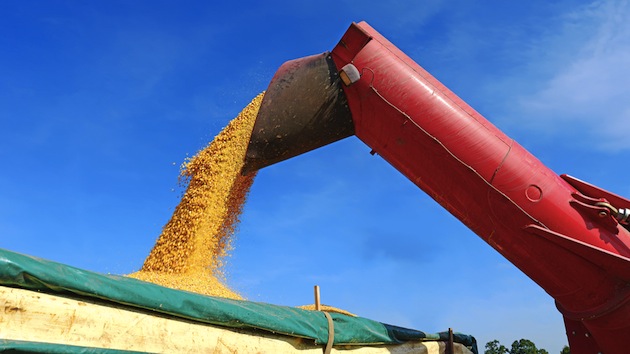Asked by 60 Minutes‘ Scott Pelley what he expected to “get through the Congress” in 2017, US Speaker of the House Paul Ryan (R.-Wisc.) echoed a theme articulated by Donald Trump’s agricultural advisers during the campaign: that an unnamed but onerous set of regulations is somehow strangling the nation’s farmers.
Here’s Ryan (emphasis added; starts about 4:25 in the video above):
We really want to focus on economic growth and growing the economy. There are a lot of regulations that are really just crushing jobs. Look at the coal miners in the Rust Belt that are getting out of work. Look at the— look at the loggers and the timber workers and the paper mills in the West Coast. Look at the ranchers or farmers in the Midwest with regulations.
It’s unclear exactly what legislative remedy Ryan foresees to this allegedly crushing regulatory burden. The farm-state politician has his finger on a real problem: cattle ranchers and Midwest crop farmers are indeed suffering hard times. But it’s not the cruel regulatory hand of the nanny state that’s causing the farm crisis.
Let’s look at ranchers first. Cattle prices have dropped steadily since the beginning of 2015. According to the latest US Department of Agriculture forecast, US cattle farmers will bring home 14.8 percent less in income this year than they did in 2015, pinched by lower prices. But if Ryan and Trump actually listen to ranchers, they won’t likely hear many complaints about how over-regulation is pinching their bottom lines. As I showed back in January, the real problem haunting ranchers is highly concentrated corporate power, not state power: just four companies slaughter and pack more than 80 percent of the cows raised in the United States, giving them massive leverage over prices paid to ranchers.
The group R-CALF USA, which represents independent ranchers, recently released its “five urgent tasks for the new administration.” Not one of them involves over-regulation. Indeed, the group calls for more regulation—mainly to constrain the power of the big beef packers. The group exhorts Trump to “enforce antitrust laws to stop packers from using their tremendous market power to exploit cattle producers on one end of the supply chain and consumers on the other,” as well as forbid those mega-meat packers from maintaining their own cattle herds, which they can use to drive down prices paid to independent ranchers.
R-CALF also wants Trump to reinstate a federal rule known as COOL, which requires that retail meat be labeled according to its country of origin. In 2015, cheered on by the meat industry, the US House snuck a provision repealing COOL into a unrelated budget bill, which President Obama had little choice but to sign. R-CALF wants COOL back, so “US ranchers can compete against the growing tide of undifferentiated foreign beef imported into their domestic market.”
Ryan also mentioned farmers in the Midwest. If he’s talking about the people who grow the nation’s corn and soybeans, by far the region’s top crops, they are indeed hurting. After years of overproduction, corn and soybean prices are in a prolonged slump—so low that they don’t cover the full costs of production, notes a recent report from the Dutch global agribusiness bank Rabobank. What’s keeping farmers afloat is exactly what Ryan and Trump deplore: government action. According to the USDA, low prices are expected to trigger $12.9 billion in federal payment to farmers for the 2016 growing season—a 19.1 percent jump over last years.
And Midwestern farms’ woes aren’t due to over-regulation, either. Again, corporate power plays a role. In short, as I have shown before (see here and here), the Midwest’s growers are wedged between a small cadre of commodity buyers (Archers Daniels Midland, Cargill, Bunge) that are always looking to drive crop prices down, and an ever-smaller group of seed and pesticide suppliers—Monsanto, Bayer, Dow, DuPont, Syngenta—always looking to push up the price of seeds, fertilizers, and pesticides.
All five of those companies are currently involved in merger deals that will be vetted by the incoming Trump Administration. With a laissez faire zealot like Ryan acting as one of the few checks on Trump’s power, it’s hard to imagine the new president making an antitrust stand.

















